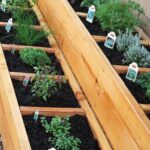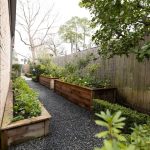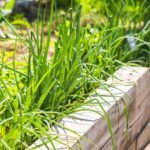Are you a vegetable gardener in the UK looking to maximize your garden’s potential throughout the year? Look no further than the Vegetable Gardeners Calendar UK, a comprehensive guide to successful vegetable gardening in the United Kingdom.
This calendar provides valuable information on what to plant, when to plant it, and how to maintain your garden for a bountiful harvest. Whether you’re a beginner or an experienced gardener, this calendar will help you make the most of your vegetable garden.
The Vegetable Gardeners Calendar UK is designed to help you plan and maintain a thriving vegetable garden throughout the year. From spring planting to winter protection, this calendar covers all aspects of vegetable gardening in the UK. Whether you have a small backyard plot or an extensive garden, following this calendar will ensure that you get the most out of your growing season.
In this article, we will explore the key elements of the Vegetable Gardeners Calendar UK, including the best vegetables to plant in each season, tips for maintaining your garden during the summer months, and how to protect your garden from winter elements. By following these guidelines, you can achieve year-round success in your vegetable garden and enjoy a continuous supply of fresh, homegrown produce.
So let’s dive into the world of vegetable gardening in the UK and learn how to make the most of your growing space.
Best Vegetables to Plant in Spring
Spring is a critical time for vegetable gardeners in the UK. The warmer weather provides the perfect conditions for planting a variety of vegetables that will thrive throughout the summer and into the fall. When planning your spring vegetable garden, it’s essential to consider which vegetables are best suited for this time of year in the UK.
Early Spring Vegetables
Some of the best vegetables to plant in early spring in the UK include peas, radishes, lettuce, spinach, and carrots. These cool-season crops can be planted as soon as the soil is workable and will tolerate the cooler temperatures of early spring.
Mid-to-Late Spring Vegetables
As spring progresses, it’s time to plant vegetables that prefer slightly warmer temperatures. This includes crops like broccoli, cauliflower, cabbage, potatoes, and onions. These vegetables will benefit from the increasing warmth and longer days of mid-to-late spring in the UK.
Spring Planting Tips
When planting your spring vegetable garden in the UK, pay attention to your local climate and frost dates. It’s important to start seeds indoors or use cold frames to protect young seedlings from late frosts. Additionally, make sure to prepare your soil by adding organic matter and compost to provide essential nutrients for your growing plants.
By carefully selecting which vegetables to plant in spring and following these planting tips, you can set yourself up for a successful growing season in your UK vegetable garden. With proper care and attention, you’ll be able to enjoy a bountiful harvest throughout the rest of the year.
Preparing Your Garden for Summer Planting
The summer months are an exciting time for vegetable gardeners in the UK as it is a great opportunity to plant a variety of vegetables that thrive in the warm weather. Before you start planting, it’s important to prepare your garden to ensure that your plants have the best chance of success.
One crucial step in preparing your garden for summer planting is to clear any debris or weeds from your garden beds. This will prevent competition for nutrients and space, allowing your new plants to grow freely.
Once your garden beds are cleared, it’s important to enrich the soil with compost or organic matter. This will provide essential nutrients for your plants and improve the soil structure, ensuring good drainage and aeration. Additionally, consider mulching your garden beds to help retain moisture during the warmer months and suppress weed growth. Mulching also helps regulate soil temperature, keeping it cooler during hot summer days.
Another key aspect of preparing your garden for summer planting is to plan out your crop rotation. Avoid planting the same family of vegetables in the same area as they were planted in the previous year to prevent disease and nutrient depletion. Instead, rotate different plant families in each bed or plot to maintain soil fertility and overall plant health.
Preparing Your Garden for Summer Planting
| Key Steps | Details |
|---|---|
| Clean Garden Beds | Clear debris and weeds to reduce competition for nutrients. |
| Enrich Soil | Add compost or organic matter to provide essential nutrients and improve soil structure. |
| Mulch Garden Beds | Use mulch to retain moisture, suppress weed growth, and regulate soil temperature. |
| Crop Rotation | Plan out crop rotation to prevent disease and maintain soil fertility. |
By following these key steps in preparing your garden for summer planting, you can set the foundation for a successful vegetable garden throughout the warmer months. With proper preparation, you can enjoy a bountiful harvest of delicious vegetables while ensuring the health and vitality of your garden.
Tips for Maintaining Your Garden in the Summer Months
During the summer months, vegetable gardeners in the UK must be diligent in maintaining their gardens to ensure optimal growth and harvest. The longer days and warmer temperatures provide both opportunities and challenges for gardeners. It is essential to stay on top of watering, pest control, and overall plant health during this time.
One critical aspect of maintaining a vegetable garden in the summer is proper watering. With higher temperatures and increased sunlight, plants require more water to thrive. It is important to water deeply and consistently, ensuring that the soil remains consistently moist but not waterlogged. Some vegetables may require daily watering, particularly those in containers or raised beds.
In addition to watering, pest control is a significant concern for summer garden maintenance. Pests such as aphids, caterpillars, and slugs are more active during warm weather and can quickly damage crops if left unchecked. Regularly inspecting plants for signs of infestation and using natural remedies or organic pesticides can help keep pest populations in check without harming beneficial insects.
Proper plant care is also essential for maintaining a healthy vegetable garden in the summer months. This includes regular weeding to prevent competition for resources, pruning to improve airflow and reduce disease risk, and monitoring for signs of nutrient deficiencies. By staying vigilant and addressing issues promptly, vegetable gardeners can enjoy a bountiful harvest throughout the summer season.
| Summer Garden Maintenance Tips | Importance |
|---|---|
| Proper Watering | Ensure plant hydration |
| Pest Control | Prevent damage from pests |
| Regular Plant Care | Maintain plant health |
Fall Planting
Fall is a crucial time for vegetable gardeners in the UK, as it offers the opportunity to plant and grow a variety of vegetables that thrive in the cooler weather. By taking advantage of the fall season, you can ensure a bountiful harvest well into winter and even early spring. Here are some vegetables to focus on planting during the fall months.
Root Vegetables
Root vegetables such as carrots, beets, turnips, and radishes are perfect for fall planting in the UK. These vegetables can withstand cooler temperatures and will continue to grow throughout the winter, providing you with fresh produce for soups, stews, and roasts.
Brassicas
Cabbage, broccoli, cauliflower, and Brussels sprouts are all excellent choices for fall planting in the UK. These cold-hardy vegetables can handle frosty conditions and often taste better after a light frost. By planting them in the fall, you can enjoy a delicious harvest before and during winter.
Leafy Greens
Leafy greens such as spinach, kale, lettuce, and chard also thrive in the cooler weather of autumn. These nutrient-packed vegetables are not only easy to grow but also provide a quick turnaround from planting to harvest. By sowing these seeds in the fall, you can enjoy fresh salads all winter long.
By focusing on these fall-planted vegetables in your UK garden, you can extend your growing season well into the colder months. Make sure to provide adequate protection from frost when necessary and keep an eye on soil moisture levels as autumn progresses. With proper care and attention, your fall-planted vegetable garden will yield plentiful harvests throughout winter.
Protecting Your Garden From Winter Elements
Winter can be a challenging time for vegetable gardeners in the UK as they contend with harsh weather and cold temperatures. However, proper protection and maintenance can help ensure that your garden survives the winter months and sets the stage for a successful spring planting.
One of the key challenges in winter gardening is protecting your plants from freezing temperatures. Consider using cloches, row covers, or cold frames to shield your crops from frost. Additionally, mulching around your plants can help insulate the soil and protect the root system from extreme cold. Be sure to also cover any delicate or vulnerable plants with frost cloth or burlap to provide extra protection.
In addition to the threat of freezing temperatures, winter gardens also face potential damage from strong winds, heavy rain, and snowfall. Make sure any structures, such as trellises or supports, are securely fastened to withstand windy conditions. Remove any excess snow from your garden beds to prevent damage to your plants and structures.
Finally, consider investing in a sturdy greenhouse or polytunnel for added protection during the winter season. By taking these precautions, you can safeguard your vegetable garden from the harshest elements of winter and lay the groundwork for a successful growing season ahead.
Year-Round Maintenance for Your Vegetable Garden
When it comes to maintaining a successful vegetable garden in the UK, year-round maintenance is crucial. By following a consistent maintenance schedule, you can ensure that your garden remains healthy and productive throughout the seasons. Here are some tips for year-round maintenance of your vegetable garden:
1. Regular Weeding: Throughout the year, it’s essential to keep up with weeding to prevent invasive plants from taking over and competing with your vegetables for nutrients and water.
2. Mulching: Mulching your garden beds helps to retain moisture, suppress weeds, and regulate soil temperature. In the UK, where weather conditions can be unpredictable, mulching is particularly important for protecting your plants from extremes in temperature.
3. Crop Rotation: To prevent soil depletion and minimize pest and disease issues, rotate your crops each season. This means planting different types of vegetables in different areas of your garden from year to year.
Implementing these maintenance tasks throughout the year will help you achieve success in your vegetable garden, regardless of the season or weather conditions. By staying on top of these tasks, you can enjoy a bountiful harvest and a thriving garden all year long.
Remember that every season brings unique challenges and opportunities for vegetable gardeners in the UK. By staying proactive with maintenance tasks, you can overcome these challenges and create a productive and beautiful vegetable garden that provides fresh produce throughout the year.
Resources for Vegetable Gardeners in the UK
When it comes to maintaining a successful vegetable garden in the UK, it’s essential to have access to the right resources. Whether you’re a beginner or a seasoned gardener, there are various tools and organizations that can provide valuable support and guidance throughout the year.
Here are some top resources for vegetable gardeners in the UK:
- Royal Horticultural Society (RHS): The RHS is a fantastic resource for all things gardening, offering expert advice, plant guides, and information on upcoming events and workshops.
- Garden Organic: This charity is dedicated to promoting organic gardening and provides a wealth of resources on sustainable growing practices, including tips on composting, crop rotation, and natural pest control.
- Local Allotment Associations: Joining or connecting with local allotment associations can be an excellent way to network with other vegetable gardeners in your area, share tips and experiences, and even swap seeds or plants.
In addition to these resources, it’s also beneficial to explore gardening publications and online forums for further insights on growing vegetables in the UK. By staying informed and connected with fellow gardeners, you can enhance your knowledge and maximize the success of your vegetable garden throughout the year.
Conclusion
In conclusion, the Vegetable Gardeners Calendar UK provides a comprehensive guide for gardeners to achieve year-round success in their vegetable gardens. By following the planting and maintenance tips provided in this calendar, gardeners can enjoy a bountiful harvest throughout the seasons.
Throughout the year, there are various opportunities to plant and cultivate different vegetables. From spring planting to fall harvesting, this calendar offers valuable insights into the best vegetables to focus on during each season. Additionally, it also emphasizes the importance of preparing the garden for summer planting and protecting it from winter elements.
It is essential for vegetable gardeners in the UK to stay informed about the specific needs of their plants and how these change over time. With proper care and attention, a thriving vegetable garden can be achieved. The Vegetable Gardeners Calendar UK serves as a helpful resource in achieving this goal, providing invaluable guidance for maintaining a healthy and productive garden year-round.
Frequently Asked Questions
What Month Do You Plant Vegetables UK?
In the UK, the best month to start planting vegetables varies depending on the specific type of vegetable. Generally, cool-season vegetables like carrots and lettuce can be planted in early spring, while warm-season veggies like tomatoes and peppers are usually planted in late spring or early summer.
What Is the Vegetable Planting Calendar App UK?
There are several vegetable planting calendar apps available in the UK that can help gardeners plan out their planting schedule. These apps provide information on the best time to plant each type of vegetable based on the local climate and growing conditions, making it easier to manage a successful garden.
Can You Grow Veg All Year Round in UK?
While it is possible to grow some vegetables year-round in the UK, it largely depends on the climate and specific growing conditions in a given region. Some cold-hardy vegetables like kale and Brussels sprouts can withstand winter temperatures, while others may require protection or indoor growing during the colder months.
Overall, with proper planning and care, it is possible to have a continuous supply of homegrown veggies throughout the year in the UK.

If you’re looking to get into vegetable gardening, or are just looking for some tips on how to make your current garden better, then you’ve come to the right place! My name is Ethel and I have been gardening for years. In this blog, I’m going to share with you some of my best tips on how to create a successful vegetable garden.





